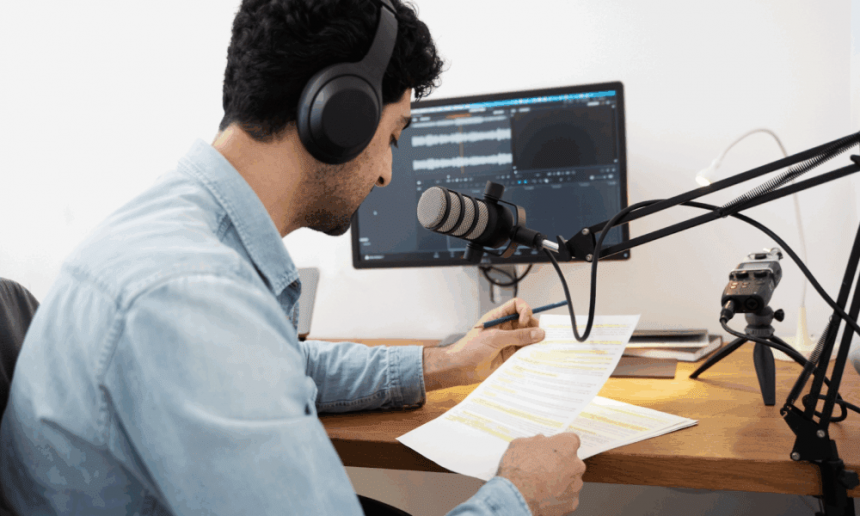In today’s fast-paced digital world, spoken words hold as much value as written ones. People record meetings, interviews, and classes every day, but searching through long recordings can be stressful and time-consuming. That’s where audio-to-text technology steps in converting speech into clear, searchable text that saves hours of effort.
Why Audio-to-Text Is a Game-Changer
Imagine a student attending a long lecture. Instead of worrying about missing details, they can simply record the class and convert it into written notes later. A business professional can transcribe meeting discussions to ensure no important point is forgotten. Journalists and researchers can turn interviews into easy-to-read transcripts in minutes.
This technology is not just about speed; it’s also about accessibility. For people with hearing difficulties, transcripts make information easier to consume. For creators, transcribed content can be repurposed into blogs, captions, or summaries. In short, it helps everyone work smarter.
From Old Methods to Modern Solutions
In the past, transcription was slow and tiring. People had to replay audio, pause, and type every word by hand. Today, thanks to artificial intelligence, the process takes just a few clicks. Modern platforms provide accurate, fast, and affordable transcription for everyday use.
With services like audio to text free tools, users can experience this transformation without worrying about complicated setups or expensive software. It’s simple, effective, and available to anyone with an internet connection.
Who Benefits the Most?
Different groups are finding new ways to use transcription tools in their daily routines. For example:
- Students create study notes from lectures.
- Business teams record meetings and generate transcripts for easy review.
- Content creators repurpose podcasts or videos into written content.
- Researchers and journalists save hours turning interviews into text.
This shows how flexible and universal transcription technology has become. Whether personal or professional, the applications are endless.
To make things clearer, here are four key advantages:
- Saves time by eliminating manual note-taking.
- Improves accuracy with AI-driven transcription.
- Enhances accessibility for those with hearing difficulties.
- Boosts productivity by turning audio into reusable written content.
Why People Prefer Online Transcription Tools
One of the biggest advantages today is the ability to transcribe directly in a browser. There’s no need to download bulky software or deal with complicated installations. With an audio to text free online tool, anyone can upload a file and get results quickly, whether they’re on a computer, tablet, or even a phone.
For busy professionals, this flexibility is priceless. It means they can work from anywhere, stay organized, and keep track of important details without slowing down.
Businesses Unlocking Hidden Value
Companies today generate endless streams of information. Meetings, client calls, brainstorming sessions all filled with insights. Without proper documentation, these valuable ideas often get lost. Transcription tools capture those insights and make them searchable.
Law firms, hospitals, schools, and media companies all benefit from this technology. It ensures accuracy, saves resources, and creates reliable records. Businesses that adopt transcription gain a clear edge over competitors.
Why Vomo Stands Out
When it comes to modern transcription, Vomo is making a strong impression. Known for its ease of use and accuracy, it’s becoming a trusted platform for students, professionals, and businesses alike.
What makes it different is the balance of simplicity and power. Upload audio, and within moments, you’ll have a precise transcript. From lectures to legal discussions, Vomo adapts to all needs, giving users more control over their time and productivity.
Looking Ahead
The future of transcription is bright. Soon, live meetings may come with real-time captions. Multilingual features will break down language barriers, making global communication smoother. As this technology continues to grow, it will become an essential tool in education, business, healthcare, and beyond.
The Role of AI in Modern Transcription
Artificial intelligence has completely transformed transcription. Instead of manually typing every word, AI-powered tools now process hours of audio in minutes. They adapt to different voices, accents, and speaking speeds, delivering reliable results that make transcription easier than ever.
Accessibility Benefits for Everyone
Audio-to-text tools are not just about saving time; they also improve accessibility. People with hearing difficulties can read transcripts to understand spoken content. At the same time, non-native speakers can follow along more easily by combining audio with written text.
Repurposing Content for Greater Value
One of the biggest advantages of transcription is content repurposing. A single podcast or video can be turned into a blog, article, social media post, or caption. This allows creators and businesses to reach wider audiences without creating new material from scratch.
Conclusion
From saving time to improving accessibility, audio-to-text tools are no longer just optional they are essential. They allow individuals and organizations to focus on conversations and ideas rather than note-taking. With platforms like Vomo leading the way, turning spoken words into text has never been easier.








